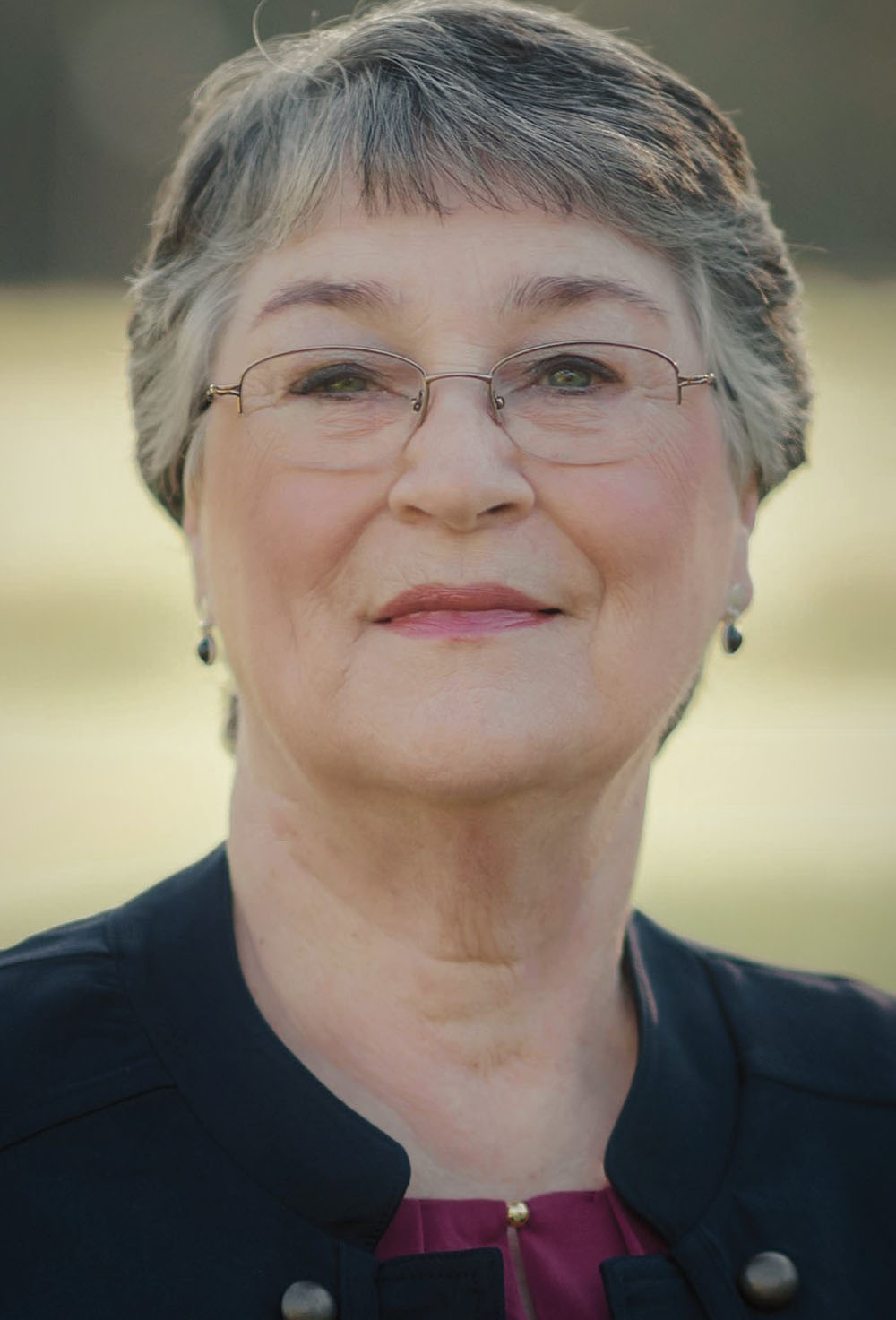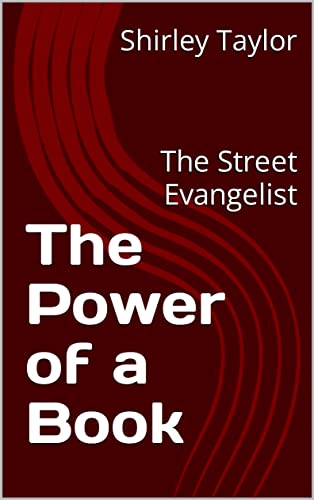“What does a street evangelist do?”
In the years since I have self-proclaimed myself to be a street evangelist, that is what people want to know. The answer is simple: “I talk with people.”
Now I’ve written a book that is a collection of my conversations with people, planting the seed of full equality for women in the church and in the home.

Shirley Taylor
I have placed hundreds of the books I have written advocating for equality for women in the hands of people. This is how and why I did it.
Just like in the song “Go, Tell it on the Mountain,” I have a story to tell. It is the story of the love God has for women and men, and the equality he gave us at creation.
Did God make woman a lesser being? Did God make women sub-spiritual beings restricted from serving fully in church? Or did the church make women that way? I grew up believing the church knew the answers and for years accepted their decree that women could not be preachers, pastors or deacons. My husband, Don, opened my eyes.
Don began telling me women were not treated fairly in Baptist churches. He said women should be deacons in the church and be allowed to lead prayer just as men could do, even preach if they are called. At that time, I was working for Baptist General Convention of Texas as a ministry assistant employed in a local field office. It was a rare Sunday that I missed attending church.
As a Baptist, I had served in every position I had desired in church, from Sunday school director, adult women’s Sunday school teacher, vacation Bible school director, and had served on a pastoral search committee, and on the building committee where we moved our church to a new building. I was completely involved in my church. I loved it and never felt I was missing out on anything. I was proud to be a Baptist.
When Don first began mentioning to me the unfairness of my denomination, I didn’t understand what he was talking about. I never had met a woman pastor and never had heard a woman preach. I did not want to be a deacon, and it didn’t dawn on me that other women in the congregation would have made excellent deacons. Looking back, I see how selfish it was. I was doing everything I wanted to do, with no thought that other women were being denied their gifts and calling.
“I wrote my pastor of 12 years and asked why it was just gray-haired men who went forward to serve the Lord’s Supper.”
It began to come together. I wrote my pastor of 12 years and asked why it was just gray-haired men who went forward to serve the Lord’s Supper. He did not reply. I discovered the reason only men served the Lord’s Supper is because it is written in the church’s bylaws that deacons serve the Lord’s Supper, or Communion, as it is called in some other churches. Therefore, since deacons are men, that is who went forward to pick up the trays of juice and bread and pass them down the pews. We took the bread and grape juice and didn’t give it another thought.
I began writing letters and sending emails to Baptist leadership expressing my desire that women be allowed to be deacons. At first that is what it was: Just let women be deacons. Deacons didn’t do anything spiritual. They didn’t have to be Sunday school teachers or preach or anything that I could see. Oh, they did have to go to meetings and serve the Lord’s Supper once every three months, but the pastor presided over the Table and said the prayer. I could not see anything deacons did that women could not do.
I also had accepted that only men could pass out church bulletins, welcome visitors, take up the offering collection and lead the congregation in prayer.
It wasn’t always that way in my little country church when I became a member in 1972, where I attended for 24 years. I remember Irene Winford and Dora Mobley leading prayer during worship service, before the offering was collected or the closing prayer.
I did not notice that the new pastor did not ask these Christian women to lead in prayer.
“The church is the last holdout for female equality.”
As time went on, I began reading more about the lack of equality for Christian women in churches. It opened up a whole new world to me. Women in all denominations are struggling for full equality — even in those churches that declare that women are equal and ordain women as pastors.
I did my own research and asked people what they thought. Should women be pastors and deacons? Most told me they thought women could. Several said they loved hearing a woman preach. From this, I decided the people are ready for women’s equality in the church, but the church is not ready.
The church is the last holdout for female equality. The first place where a woman should have been equal is proving to be the last place where she will find equality.
That is where I come in. I bring the good news to women and men. Here I am, Lord, and I will go tell it everywhere.
 Shirley Taylor speaks from her 53 years as a faithful Baptist, having been employed for almost 15 years as a ministry assistant for Baptist General Convention of Texas. Currently serving as a secretary for a small Christian church, she advocates for women’s full equality in the church and home. This column is adapted from her latest book.
Shirley Taylor speaks from her 53 years as a faithful Baptist, having been employed for almost 15 years as a ministry assistant for Baptist General Convention of Texas. Currently serving as a secretary for a small Christian church, she advocates for women’s full equality in the church and home. This column is adapted from her latest book.
Related articles:
Women in ministry: Strategically silent? | Opinion by Melody Maxwell
Jesus calls women to ministry by name and asks them to rise up, Stewart says in fiery BWIM sermon


